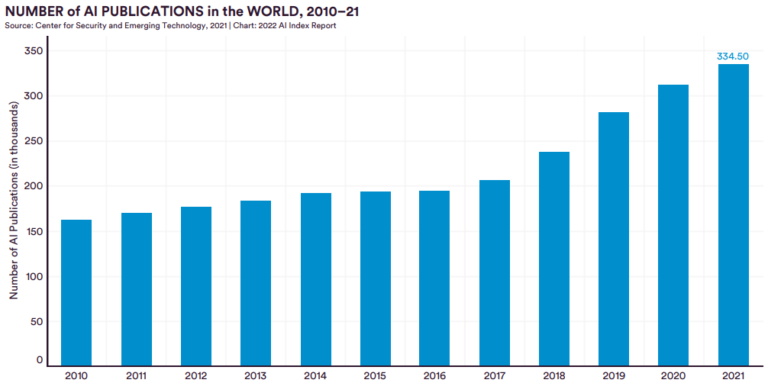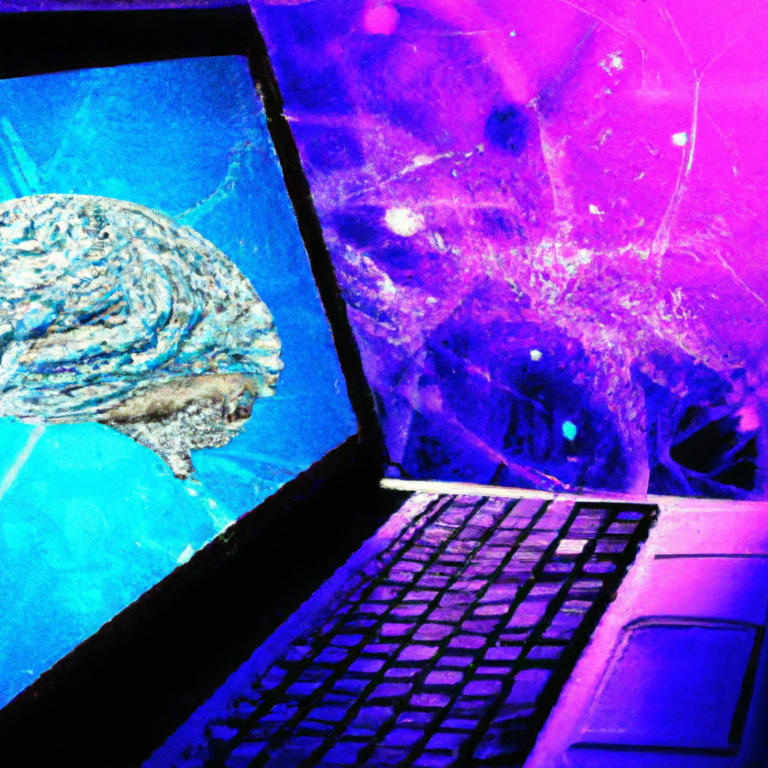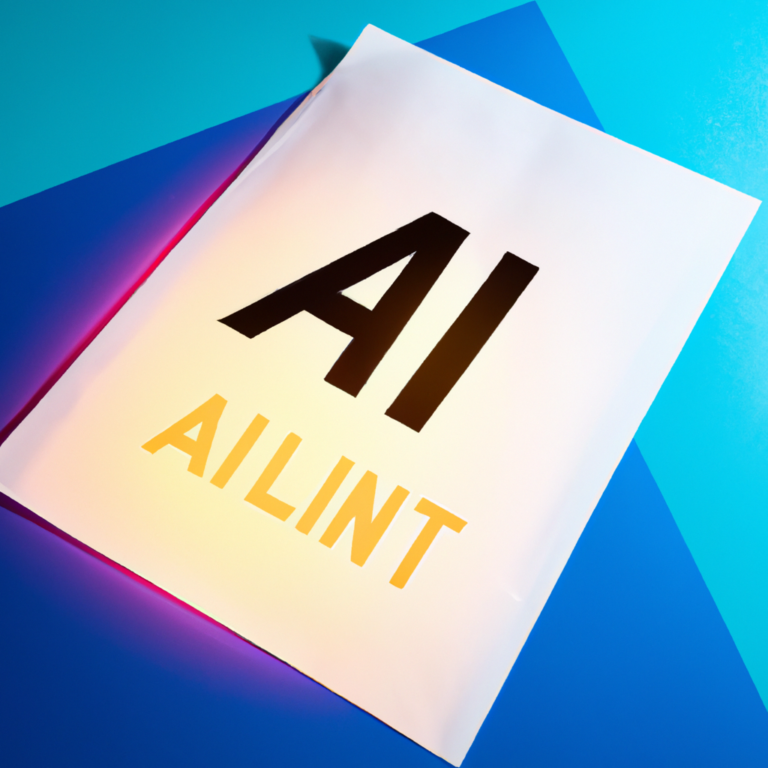The Impact Of AI On Our Lives
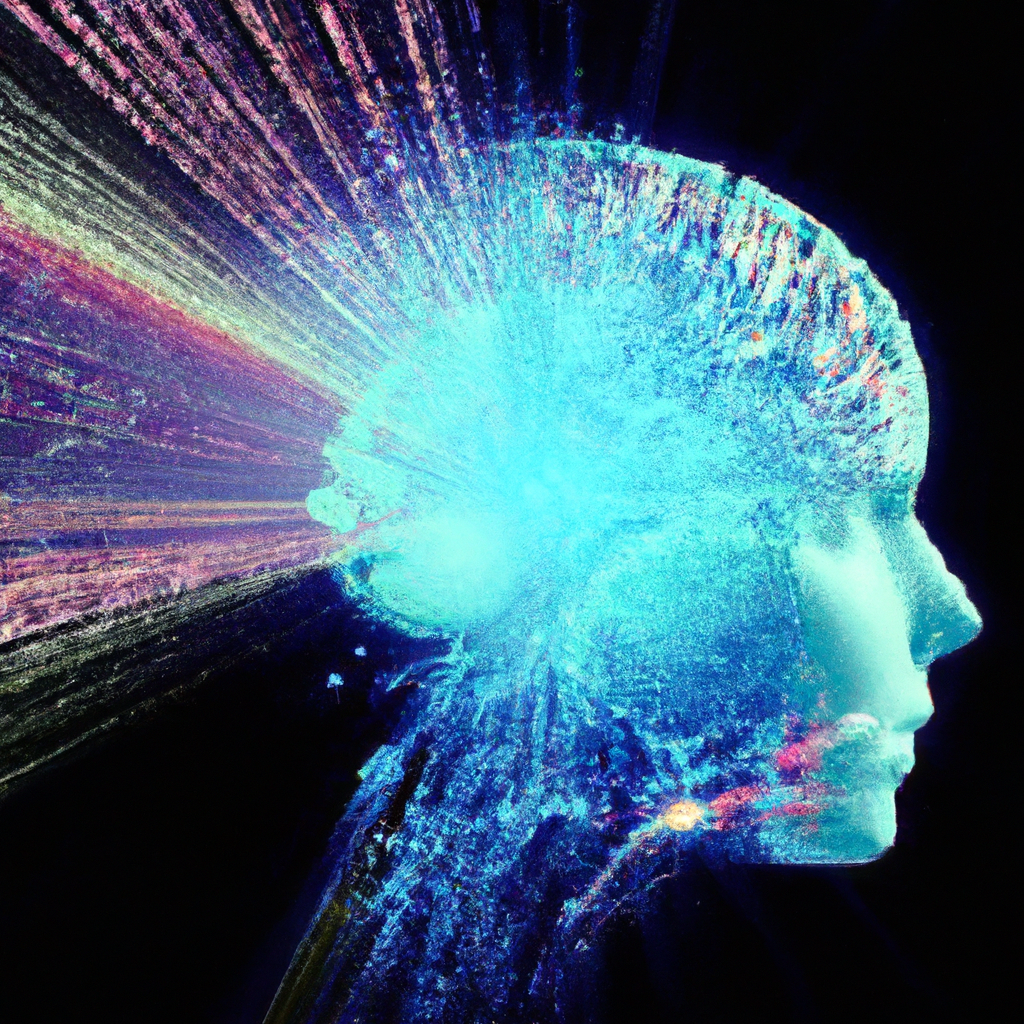
It’s undeniable that AI has made quite the impact on our lives. From our smartphones and home devices to the way we commute and interact with the world, artificial intelligence has seamlessly integrated into our daily routines. This incredible technology has transformed the way we work, communicate, and even make decisions. In this article, we will explore the various ways AI has influenced our lives, from simplifying tasks to raising questions about privacy and ethics. So, buckle up and prepare to be amazed by the fascinating ways AI has shaped the world as we know it.

Impact of AI in Healthcare
Improved diagnostics and treatment
AI has revolutionized the field of healthcare by greatly improving diagnostics and treatment methods. With the help of AI algorithms and machine learning, healthcare professionals can now accurately diagnose diseases and conditions at an early stage, allowing for prompt and effective treatment. AI systems can analyze large amounts of patient data, including medical records, lab results, and imaging scans, to detect patterns and identify potential health risks. This has resulted in faster and more accurate diagnoses, saving lives and improving patient outcomes.
Enhanced patient care and experience
AI has also greatly enhanced patient care and experience in healthcare. With the development of virtual healthcare assistants and chatbots, patients can now access personalized healthcare information and advice anytime, anywhere. These AI-powered assistants can provide immediate responses to patients’ queries, offer medication reminders, and even monitor vital signs remotely. This not only improves patient satisfaction but also reduces the burden on healthcare systems by minimizing unnecessary visits to the doctor.
AI-powered surgeries
AI has also made significant contributions to surgical procedures. With the aid of AI technologies, surgeons can now perform complex surgeries with greater precision and accuracy. AI-powered robots can assist surgeons in delicate procedures, reducing the risk of human error and improving patient outcomes. Additionally, AI systems can analyze real-time data from the operating room, alerting surgeons to potential complications or unforeseen risks during surgery. This has led to safer and more successful surgeries, ultimately benefiting patients.
Increased availability of healthcare services
One of the key impacts of AI in healthcare is the increased availability of healthcare services. Telemedicine, enabled by AI technologies, allows patients to consult with healthcare professionals remotely, overcoming geographical barriers and improving access to specialized care. This is especially beneficial for individuals residing in rural or underserved areas where access to quality healthcare may be limited. AI-powered mobile applications and wearables also enable continuous monitoring and remote healthcare management, ensuring timely intervention and preventive care.
Impact of AI in Education
Personalized learning experiences
AI has transformed the education landscape by enabling personalized learning experiences. With AI-powered educational platforms and software, students can now access tailored learning materials, adaptive assessments, and personalized feedback. These systems use data analytics and machine learning algorithms to understand individual student’s strengths, weaknesses, and learning preferences, allowing educators to provide targeted support and resources. This personalized approach to education enhances student engagement and comprehension, leading to improved academic performance.
Improved student engagement
AI technologies have significantly improved student engagement in the classroom. Virtual reality (VR) and augmented reality (AR) applications provide immersive and interactive learning experiences, making concepts more tangible and engaging for students. AI-powered chatbots and virtual assistants also offer immediate support and personalized guidance, fostering a positive and collaborative learning environment. This not only enhances students’ motivation and interest but also promotes critical thinking and problem-solving skills.
Efficient administrative tasks
AI has streamlined administrative tasks in educational institutions, freeing up valuable time for educators and administrators to focus on more crucial aspects of education. AI-powered systems can automate administrative processes such as grading, scheduling, and attendance tracking, reducing the administrative burden on teachers. This allows educators to allocate more time to lesson planning, individualized instruction, and student support, ultimately improving the quality of education.
Education accessibility and equity
AI has played a crucial role in expanding education accessibility and equity. Online learning platforms supported by AI technologies provide access to educational resources, courses, and experts regardless of geographical location or socioeconomic background. This has democratized education, empowering individuals from disadvantaged communities with opportunities for learning and skill development. AI systems also assist in bridging the language barrier by providing real-time language translation and interpretation, ensuring that education is accessible to diverse populations.
Impact of AI in Transportation
Autonomous vehicles
AI has revolutionized the transportation industry with the development of autonomous vehicles. Self-driving cars, buses, and trucks equipped with AI technologies can navigate roads, analyze traffic patterns, and make real-time decisions to ensure safe and efficient transportation. Autonomous vehicles have the potential to reduce accidents caused by human error, improve fuel efficiency, and decrease traffic congestion. With further advancements in AI and the widespread adoption of autonomous vehicles, we can expect a transformative shift in the way we travel.
Traffic management and congestion reduction
AI technologies have greatly contributed to traffic management and congestion reduction. AI-powered systems can collect and analyze real-time traffic data from various sources, such as GPS devices, traffic cameras, and sensors, to optimize traffic flow and reduce congestion. Smart traffic signals that adapt to changing traffic conditions, intelligent routing algorithms, and predictive analytics all contribute to smoother and more efficient transportation systems. This not only saves time for commuters but also reduces greenhouse gas emissions and the environmental impact of transportation.
Enhanced safety measures
AI plays a crucial role in enhancing safety measures in transportation. AI-based systems can monitor driver behavior, detect signs of fatigue or distraction, and provide real-time alerts and interventions to prevent accidents. Additionally, AI-powered sensors and cameras can identify potential hazards on the road, such as pedestrians, cyclists, or debris, and alert drivers accordingly. This proactive approach to safety has the potential to significantly reduce the number of accidents and fatalities on our roads.
Improved transportation efficiency
AI technologies have also improved transportation efficiency by optimizing routes, reducing fuel consumption, and enhancing overall logistics management. AI algorithms can analyze vast amounts of data, including historical traffic patterns, weather conditions, and delivery schedules, to optimize transportation routes and minimize delays. This not only saves time and resources but also reduces carbon emissions and the environmental impact of transportation. With AI-enabled transportation systems, we can expect more efficient and sustainable transportation networks.
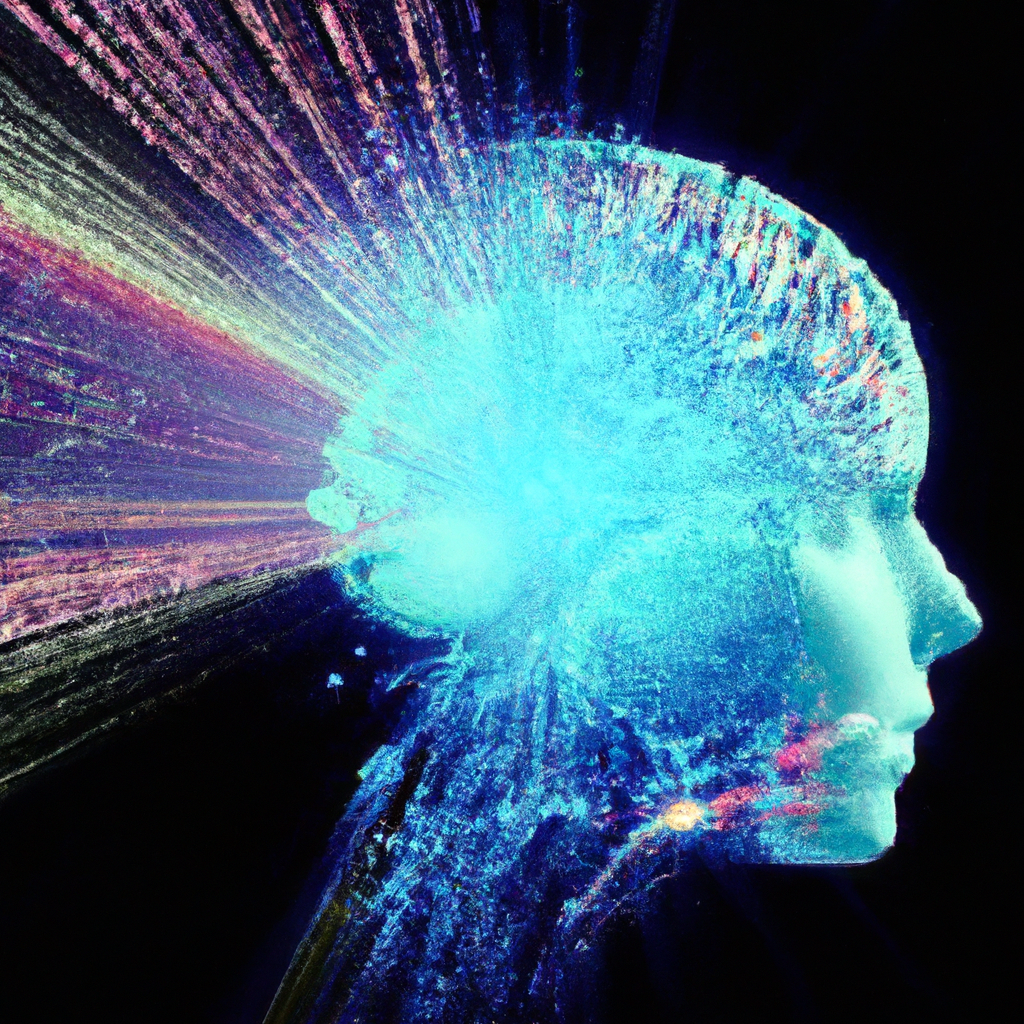
Impact of AI in Communication
Language translation and interpretation
AI technologies have made significant advancements in language translation and interpretation. AI-powered translation tools and applications can accurately translate text and speech in real-time, breaking down language barriers and facilitating effective communication between individuals from different linguistic backgrounds. This has immense implications for cross-cultural communication, international business, and global collaboration. AI also offers real-time interpretation services, enabling seamless communication in various settings such as conferences, meetings, and customer support interactions.
Speech recognition and virtual assistants
AI has greatly improved speech recognition capabilities, enabling more efficient and accurate voice interactions. Virtual assistants like Siri, Alexa, and Google Assistant utilize AI algorithms to understand and respond to human voice commands, providing information, performing tasks, and even engaging in conversation. This not only saves time and effort for users but also enhances accessibility for individuals with disabilities. AI-powered speech recognition technologies also contribute to advancements in transcription services, voice-controlled devices, and voice-enabled applications.
Customized content and recommendations
AI technologies have revolutionized content creation and recommendation systems. AI algorithms can analyze vast amounts of user data, such as browsing history, preferences, and interactions, to generate personalized content and recommendations. This personalization greatly enhances user experience, whether it’s in online shopping, streaming services, or social media platforms. AI-powered recommendation systems not only enable users to discover relevant and interesting content but also contribute to increased user engagement and customer satisfaction.
Impact of AI in Finance
Fraud detection and prevention
AI technologies have significantly improved fraud detection and prevention in the financial industry. Machine learning algorithms can analyze large volumes of transaction data, identify patterns, and detect anomalies that may indicate fraudulent activities. AI-powered systems can also continuously monitor transactions in real-time, flagging suspicious activities and preventing fraudulent transactions before they occur. This has not only saved financial institutions billions of dollars but also protected individuals and businesses from financial scams and identity theft.
Automated customer support
AI has revolutionized customer support in the financial industry. AI-powered chatbots and virtual assistants can provide instant responses, answer customer queries, and even assist with basic financial transactions. These AI systems utilize natural language processing and machine learning algorithms to understand and interact with customers in a human-like manner. Automated customer support not only improves response times and customer satisfaction but also reduces the burden on human agents, allowing them to focus on more complex and specialized tasks.
Algorithmic trading and investment strategies
AI has transformed the field of finance with the development of algorithmic trading and investment strategies. AI algorithms can analyze vast amounts of financial data, including market trends, financial statements, and news articles, to identify investment opportunities and generate optimal trading strategies. AI-powered trading systems can execute trades at high speeds and make real-time decisions based on predefined parameters and market conditions. This has led to improved investment outcomes and increased efficiency in financial markets.
Impact of AI in Manufacturing and Automation
Increased productivity and efficiency
AI technologies have greatly increased productivity and efficiency in the manufacturing industry. AI-powered robots and machines can perform repetitive and labor-intensive tasks with greater speed and precision, reducing human error and enhancing overall productivity. These AI systems can also adapt to changing production demands and optimize workflows, minimizing downtime and maximizing output. With the integration of AI technologies, manufacturers can streamline operations, reduce costs, and improve their competitive advantage in the market.
Quality control and predictive maintenance
AI plays a crucial role in quality control and predictive maintenance in manufacturing. AI systems can analyze real-time production data and detect anomalies or deviations from expected quality standards. This enables manufacturers to identify and address potential quality issues before they escalate, reducing waste and ensuring product consistency. AI-powered predictive maintenance allows manufacturers to anticipate equipment failures and schedule maintenance activities proactively, minimizing unplanned downtime and optimizing asset utilization.
Streamlined supply chain management
AI technologies have transformed supply chain management by providing real-time visibility, optimization, and automation. AI-powered systems can analyze vast amounts of data from various sources, including inventory levels, customer demand, and transportation routes, to optimize supply chain operations. AI algorithms can generate accurate demand forecasts, optimize inventory levels, and optimize transportation routes, reducing costs and improving delivery times. Additionally, AI-powered systems can identify potential bottlenecks or disruptions in the supply chain and provide proactive solutions, ensuring smooth and efficient operations.
Impact of AI in Entertainment and Media
Personalized content and recommendations
AI technologies have revolutionized the entertainment and media industry by providing personalized content and recommendations to users. Streaming platforms like Netflix and Spotify utilize AI algorithms to analyze user preferences, viewing habits, and interactions to generate personalized recommendations. This personalization enhances user experience, increases engagement, and drives customer loyalty. AI-powered content creation tools also enable users to personalize and customize their own content, such as video editing software and interactive storytelling platforms.
Advanced data analytics and predictive modeling
AI-powered data analytics and predictive modeling have greatly impacted the entertainment and media industry. AI algorithms can analyze vast amounts of data, including audience demographics, viewing patterns, and content preferences, to generate valuable insights and trends. This data-driven approach enables media companies to make informed decisions about content creation, marketing strategies, and distribution methods. AI-powered predictive models can also forecast audience demand, box office performance, and advertising effectiveness, allowing industry professionals to optimize their offerings and increase profitability.
Virtual reality and immersive experiences
AI technologies have transformed the entertainment and media industry with the introduction of virtual reality (VR) and immersive experiences. VR applications provide users with a fully immersive and interactive experience, transporting them to virtual worlds and simulations. AI algorithms enhance VR experiences by analyzing user interactions, preferences, and physiological responses, adapting the virtual environment in real-time to maximize engagement and enjoyment. This opens up new possibilities for storytelling, gaming, and interactive experiences, revolutionizing the way we consume entertainment and media.
Impact of AI in Agriculture
Precision farming and crop management
AI has revolutionized the field of agriculture by enabling precision farming and crop management. AI systems can analyze data from various sources, such as satellite imagery, weather patterns, and soil conditions, to optimize irrigation, fertilization, and pest control. This data-driven approach ensures that crops receive the right amount of nutrients and resources, reducing waste and maximizing yield. AI-powered drones and robots can also assist in monitoring crop health, detecting diseases and pests, and even performing precision planting and harvesting, further enhancing agricultural efficiency.
Livestock monitoring and management
AI technologies have greatly improved livestock monitoring and management in the agricultural industry. AI-powered sensors and wearable devices can track and analyze vital signs, behavior patterns, and overall health of livestock animals. This real-time data enables farmers to identify early signs of disease, stress, or distress, allowing for timely intervention and preventive measures. AI systems can also monitor feed management, breeding cycles, and environmental conditions, optimizing livestock welfare and productivity. This has greatly improved animal health outcomes and farm profitability.
Crop disease detection and prevention
AI technologies have greatly contributed to crop disease detection and prevention in agriculture. AI-powered systems can analyze images of crops, leaves, and fruits to identify signs of diseases, pests, or nutrient deficiencies. This early detection allows farmers to take immediate action, preventing the spread of diseases and minimizing crop losses. AI algorithms can also provide recommendations for targeted pesticide or fertilizer applications, reducing the use of chemicals and promoting sustainable farming practices. The integration of AI in agriculture has significantly improved crop yield, quality, and overall farm profitability.
Impact of AI in Environmental Conservation
Smart energy management
AI technologies have greatly contributed to smart energy management and conservation. AI-powered systems can analyze energy consumption patterns, weather conditions, and building data to optimize energy usage in homes, offices, and industrial facilities. AI algorithms can dynamically adjust heating, cooling, and lighting settings to maximize energy efficiency while maintaining occupant comfort. Smart energy management systems can also integrate renewable energy sources, such as solar panels and wind turbines, and automatically balance energy supply and demand. This AI-enabled approach to energy conservation reduces greenhouse gas emissions and promotes sustainable living.
Wildlife protection and habitat conservation
AI plays a crucial role in wildlife protection and habitat conservation efforts. AI-powered sensors and cameras can monitor and analyze animal behavior, signs of poaching or illegal logging, and changes in biodiversity patterns. This data-driven approach enables conservation organizations to identify vulnerable species, protect endangered habitats, and detect illegal activities in real-time. AI algorithms can also predict and model the impacts of climate change on ecosystems, supporting informed decision-making and proactive conservation strategies.
Climate change modeling and prediction
AI technologies have greatly advanced climate change modeling and prediction capabilities. AI-powered systems can analyze vast amounts of climate data, including temperature records, air quality measurements, and satellite imagery, to generate accurate climate models and predictive simulations. These models enable scientists and policymakers to understand the complex dynamics of climate change, predict future scenarios, and develop effective mitigation and adaptation strategies. AI algorithms can also identify trends and patterns in climate data, supporting the identification of climate hotspots and informing targeted intervention efforts.
Ethical Considerations and Challenges of AI
Privacy and data security
The widespread adoption of AI raises important ethical considerations regarding privacy and data security. AI systems rely on large amounts of personal data to generate accurate predictions and personalized experiences. However, the collection, storage, and analysis of personal data pose significant risks to individual privacy. Organizations must prioritize data protection and implement stringent security measures to ensure that sensitive information is not misused or accessed by unauthorized parties. Additionally, transparency and informed consent become crucial in ensuring that individuals have control over their data and understand how it is being used.
Bias and fairness in algorithms
AI algorithms are only as unbiased and fair as the data they are trained on. If the training data is biased or limited in its representation, AI systems can perpetuate and amplify existing biases and inequalities. It is essential to regularly evaluate and audit AI algorithms to identify and address any biases that may emerge. Organizations must prioritize fairness and inclusivity in the development and deployment of AI systems, ensuring that decision-making processes do not discriminate against marginalized groups or perpetuate stereotypes.
Job displacement and unemployment
The increasing integration of AI technologies in various industries has raised concerns about job displacement and unemployment. As AI systems automate repetitive and routine tasks, there is a possibility that certain job roles may become obsolete. However, it is important to remember that AI also creates new job opportunities and shifts the nature of work. Organizations and policymakers must focus on reskilling and upskilling programs to ensure a smooth transition for individuals whose jobs are affected by AI. It is crucial to strike a balance between technological advancements and societal well-being, ensuring that the benefits of AI are widely distributed.
Ethical decision-making by AI
As AI technologies become more advanced and autonomous, ethical decision-making becomes a significant challenge. AI systems make decisions based on patterns and algorithms, without human emotions or moral reasoning. This raises important questions about the responsibility and accountability of AI systems. Organizations developing AI technologies must prioritize ethical considerations in the design and development process. The integration of ethical guidelines and principles, such as transparency, fairness, and accountability, ensures that AI systems align with societal values and respect human rights.

